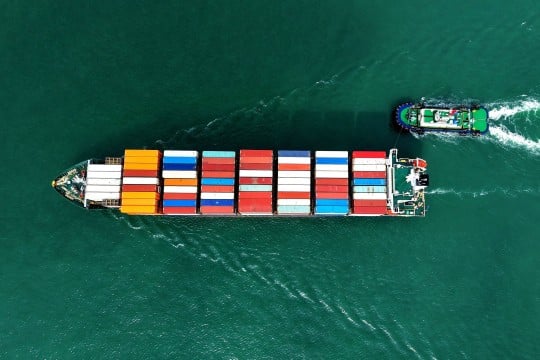
Shipping companies are rushing to divert vessels and adjust their corporate structures, as they strive to minimise their exposure to steep new US and Chinese port fees that took effect on Tuesday.
The dispute was launched by U.S. President Donald Trump, who decided to impose fees on Chinese and China-built vessels calling at U.S. ports. China is retaliating as part of a broader trade battle. Both fees went into effect on Tuesday.
“While the U.S. and China are each other’s primary target in assessing their parallel port fees, there will be collateral damage for the global shipping industry — and European fleets in particular,” said James Lightbourn, head of maritime advisory firm Cavalier Shipping
The U.S. is charging $50 per net ton and China is initially charging a similar amount, 400 yuan ($56.22) per net ton, rising to 1,120 yuan per ton in 2028. Both fees are charged once per service and capped at five a year.
Lloyd’s List calculated that for a single 35,000 ton vehicle carrier calling at U.S. ports, the new fee would come to $5.6 million a year. Because Chinese ports often service much larger bulk carriers with a capacity of 200,000 tons or more, the fees could be much steeper.
While the U.S. measure will have little impact on European shipping firms, the Chinese retaliation could be much more painful. China’s fees apply to any vessel owned or operated by a company in which Americans hold at least 25 percent of the equity, voting rights, or board seats — a definition broad enough to ensnare many European companies.
Lightbourn noted that the effect of the U.S. fees will likely be limited: “In 2024, out of 85,735 total port calls by internationally trading vessels, only 254 would fall under the fee scope — those made by Chinese-built ships not operated by Chinese shipping companies.”
Philip Damas, head of supply chain advisers at maritime consultancy Drewry, calculated that only roughly 11 percent of container ships sailing to and from the U.S. would be affected




